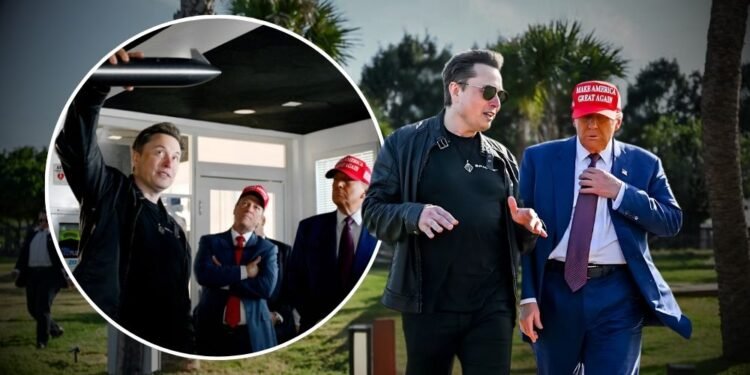Elon Musk’s SpaceX, alongside partners Palantir and Anduril, is emerging as a top contender to build a key component of U.S. President Donald Trump’s ambitious “Golden Dome” missile defense shield, according to sources familiar with the matter.
This high-tech project, inspired by Israel’s Iron Dome, aims to protect the U.S. from missile threats through a network of satellites.
For Filipinos watching global developments, this signals a bold step in U.S. defense innovation with potential ripple effects on international security.
Trump described missile attacks as “the most catastrophic threat facing the United States.”
The Golden Dome envisions a “custody layer” of 400 to over 1,000 satellites to detect and track missiles, with a separate fleet of about 200 armed satellites to neutralize threats using missiles or lasers. SpaceX is focused on the tracking system, leaving weaponization to other contractors.
The company estimates initial engineering and design costs at $6 billion to $10 billion, leveraging its experience launching hundreds of spy satellites and prototypes in recent years.
What sets this apart? SpaceX is pitching a “subscription model” where the U.S. government would pay for access to the technology rather than own it outright.
This could speed up deployment by bypassing some Pentagon procurement rules, though it’s raised eyebrows among officials wary of long-term costs and control.
The Pentagon, led by Defense Secretary Peter Hegseth, is fast-tracking proposals, with timelines starting in 2026 and full deployment eyed post-2030.
Over 180 companies, including traditional defense giants like Boeing and Lockheed Martin, are also vying for a piece of the project.
SpaceX’s edge lies in its proven rocket fleet, like the Falcon 9, and existing satellite infrastructure, which could be repurposed for the shield.
Partners Palantir, a data analytics firm, and Anduril, a drone specialist, bring cutting-edge tech to the table, reflecting a shift toward Silicon Valley’s role in defense.
The trio’s founders, including Musk, have been vocal Trump supporters, adding a layer of intrigue to the selection process, though no contracts have been awarded yet.
For Filipinos, this development underscores the U.S.’s focus on countering global missile threats, which could influence defense strategies in the Indo-Pacific, a region close to home.
As the Golden Dome takes shape, its success could redefine how nations approach missile defense—potentially impacting alliances and security dynamics in Asia. The project’s scale, cost, and reliance on private tech giants make it a story worth watching.












